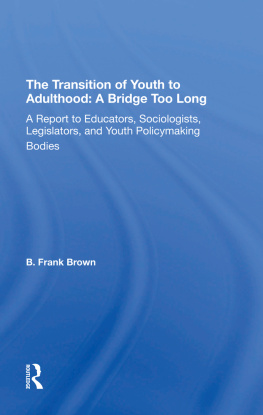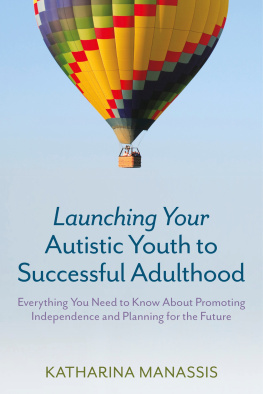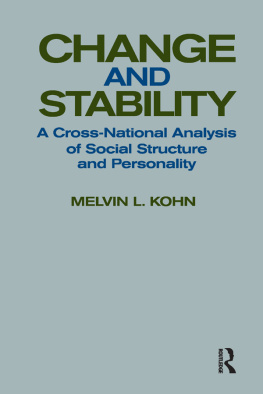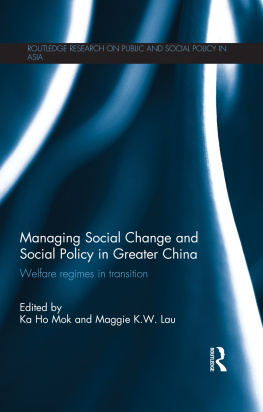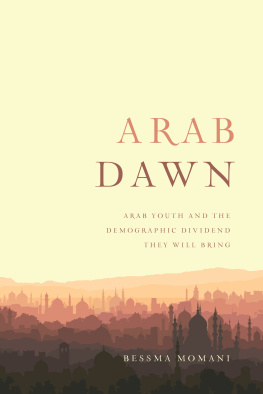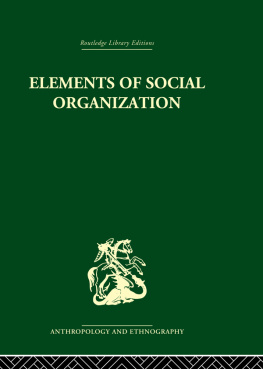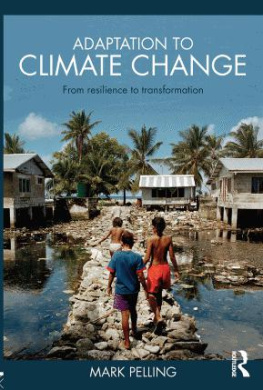
Cambridge Studies in Work and Social Inequality
Series editors
R. M. Blackburn, Ken Prandy, Jenny Jarman
1 Locating gender Janet Siltanen
2 Social divisions Lydia Morris
3 Womens work in East and West
Norman Stockman, Norman Bonney, Sheng Xuewen
4 Rights of passage Sarah Irwin
Sarah Irwin 1995
This book is copyright under the Berne Convention.
No reproduction without permission.
All rights reserved.
First published in 1995 by UCL Press
Reprinted 2003 by Routledge
11 New Fetter Lane
London, EC4P 4EE
Routledge is an imprint of the
Taylor & Francis Group
ISBNs:
1-85728-429-1 HB
1-85728-430-5 PB
ISBN 978-1-13422-213-1 (ePub)
British Library Cataloguing in Publication Data
A catalogue record for this book is available from the British Library.
Library of Congress Cataloging-in-Publication data are available.
Typeset in Palatino.
Printed and bound by
Antony Rowe Ltd, Eastbourne.
To my parents, Ann and HewThe idea for this book arose out of my PhD research, and my thanks are due to those whose enthusiasms, insights and encouragement were so important to me in the research and writing of the thesis and in its subsequent evolution. I am indebted to John Holmwood for contributing so much to the development of my ideas and for his incisive, and always constructive, criticism. Thanks also to Sandy Stewart for his important insights and comments. I am grateful to Colin Bell for reading and commenting on various drafts, and to Janet Siltanen for engaging with my research at a time when she had several pressing demands to contend with. The manuscript has benefited from the detailed reading and suggestions of Bob Blackburn and Ken Prandy. With warmest thanks also to my family and friends. I cannot name them all here but I am very grateful for the many ways in which they have given support. In particular, I wish to express my deep gratitude to Wendy Bottero, for sharing so much, and contributing so much in the development and sharpening of my ideas. Special thanks too, to Ian Jones, for his encouragement and support. I am grateful also to my survey respondents who gave their time so willingly in answering my questions.
Introduction
The subject of this book is change in the transition from youth to adulthood. The approach endeavours to break with the boundaries that conventionally delimit discussion of this life course period, and offers an analysis that treats it as an integral aspect of more general social arrangements. Any separation of biography, or life course related processes, from such arrangements hinders analysis of social change. What is clear from the briefest survey of the experience of youth and young adults is the importance of a framework capable of furthering this sort of analysis. Recent decades have seen a pattern of deferral in the timing of transitions from the partial dependence of youth to the independence associated with adult status. Employment amongst teenagers has increasingly been displaced by youth training, unemployment and full-time education, the ages at which young people can expect to secure employment and a wage have risen, and amongst those young adults who are in employment, earnings have declined relative to average adult earnings. Young people tend to stay longer in their parental homes before establishing independent households, and a long run trend to younger ages at family formation was reversed in the 1970s since when a pattern of deferral by successive cohorts in the timing of marriage and parenthood has continued.
These changes indicate a set of developments in relation to both employment and family arrangements. The life course careers of young people through the labour market and the domestic sphere have been a central concern in recent analyses of youth and the transition to adult status. Much research in the area has been dominated by a concern with the family-related consequences of economic restructuring. Here, employment security is seen as important to the ability of young people to attain independence from the parental home, and establish new households and new families. Economic retrenchment, mass unemployment and the collapse of employment opportunities, and the increasingly limited scope for young people to secure the means to independence at a young age have made urgent the questions of their ability to attain adult lifestyles, and of their life chances. A number of writers have addressed a hypothesis of deferral amongst young people, in the attainment of adult status, and in the timing of independence, marriage and parenthood, as a consequence of changes in the structure of youth employment opportunities.
The research out of which this book has arisen started with a question shared by several other commentators: what are the consequences of economic change, in particular changing structures of employment and labour demand, for the transition from youth to adulthood? In the course of the research it became apparent that this question, and the ways in which it is variously formulated and addressed, is unhelpful. It suggests a causality from employment restructuring to life course relations that entails a division between economic and social processes. It is an argument of this book that an adequate account of change in the structure of the life course requires an understanding of the economic and the social as aspects of a unified, coherent social structure.
A defining characteristic of the transition from youth to adult status is the progression from partial dependence on parents to independence, and a reliance by individuals on themselves (and their partners) for resourcing their daily living arrangements. Now, this invites consideration of the social arrangements through which both dependence and independence are resourced. Financial dependence implies that the reproduction of peoples day-to-day living arrangements is organized through claims on others, typically on those with independent access to earnings. The organization of social reproduction is itself reflected in a structure of earnings that rewards people not as equal before the labour market, but in relation to a general structure of claims and obligations. A hypothesis of deferral in the timing of the attainment of independence and adult obligations then, is necessarily also a hypothesis of change in the social organization of dependence and obligation. However, as we will see, there has been a tendency to treat life course structure as influenced by, but nevertheless independent from, more general social and economic processes. It is for this reason that adequate explanations of change in the transition from youth to adulthood have proved elusive.
Recognition of the need for theoretical development is reflected in recent criticisms of youth research. These charge such research with a failure to locate youth and transitions to adulthood in their social context (Jones 1988; see also Chisholm 1990; Ashton & Lowe 1991; Jones & Wallace 1992). This state of affairs calls into question the efficacy of understandings that operate with an unlocated version of youth. The difficulties of locating youth do not arise from neglect; on the contrary, the problem has been important in shaping research agendas. Youth has been problematized in efforts to explain its social construction, and its relationship to adult forms of inequality, to citizenship and to economic change. Quickly, however, such reconstructions fall back onto a division between separate spheres: between family- and employment-related processes, and between dependence and independence, and locating youth in relation to general processes becomes a


